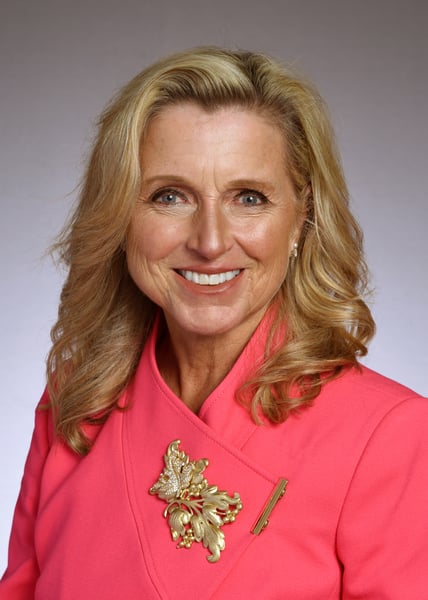

Note to business owners, especially female ones: no matter how well you run your business, you are not going to live forever. So prepare in advance to pass it down, says Carol Schleif, chief investment officer at BMO Family Office.
“We did a survey earlier this year to evaluate planning, and it was about equally split between men and women,” said Schleif. “And the women business owners in particular were substantially less likely to do succession planning.”
The reason for that result for both genders, says Schleif, is that entrepreneurs and business owners tend to be in perpetual “growth mode.” They are so focused on growing the business that they neglect to think about (or perhaps simply accept) the fact that they are ever going to pass away.
Alas, they will, of course, which is why they need to be thinking of passing down the business even while it's alive and kicking. That means creating a strategic plan to carry the business through not just the death of the founder and operator, but injury or incapacitation as well.
Schleif says it’s often the role of the financial advisor to force the client to consider these unpleasant realities to save them, or their families, additional heartache in the future.
“It's one of those things where they are so busy starting a business and growing it and dealing with it on a day-to-day basis that it is hard for them to pull back and do that strategic plan,” said Schleif, making it especially difficult when they “start small” and are “wearing a bunch of hats” as entrepreneurs often do.
The key to alleviating the pressure on the client, says Schleif, is to break this long-term goal of succession planning into small, manageable pieces, as opposed to one big mammoth sit-down. She also suggests assembling a strong team of accountants and lawyers for estate planning, and not necessarily the same ones the client may have relied on to start and build his or her business.
“You really want to make sure a lot of that planning happens ahead of time because you want to have contingency plans in place,” said Schleif. “We buy property insurance, we have casualty insurance, we have all of that sort of stuff. We plan for those things we don't expect to happen necessarily.”
Schleif says women business owners tend to procrastinate when it comes to succession planning because they are more conscious of their employees and customers compared to men in her experience. As a result, she has seen a number of female business owners create plans to sell their businesses to their employees.
“They worked with advisors to establish employee stock ownership plans and gifted the business, basically sold the business over time to employees,” said Schleif.
Other founders or business owners plan to leave their firms to their family, which creates a different set of challenges. In those cases, Schleif recommends a series of conversations around family governance in order to position the children to be both wealth inheritors and business inheritors.
“We have lots of folks that work with us to facilitate discussions about values, focusing there first in terms of aspects they share,” said Schleif. “Starting those discussions around the emotional pieces of the business is really important.”

Former Northwestern Mutual advisors join firm for independence.

Executives from LPL Financial, Cresset Partners hired for key roles.

Geopolitical tension has been managed well by the markets.

December cut is still a possiblity.

Canada, China among nations to react to president-elect's comments.
Streamline your outreach with Aidentified's AI-driven solutions
This season’s market volatility: Positioning for rate relief, income growth and the AI rebound
